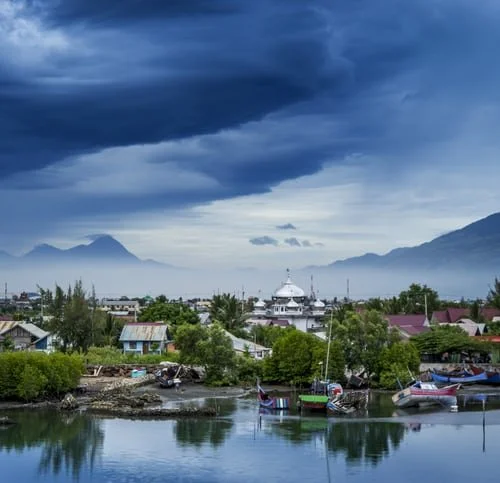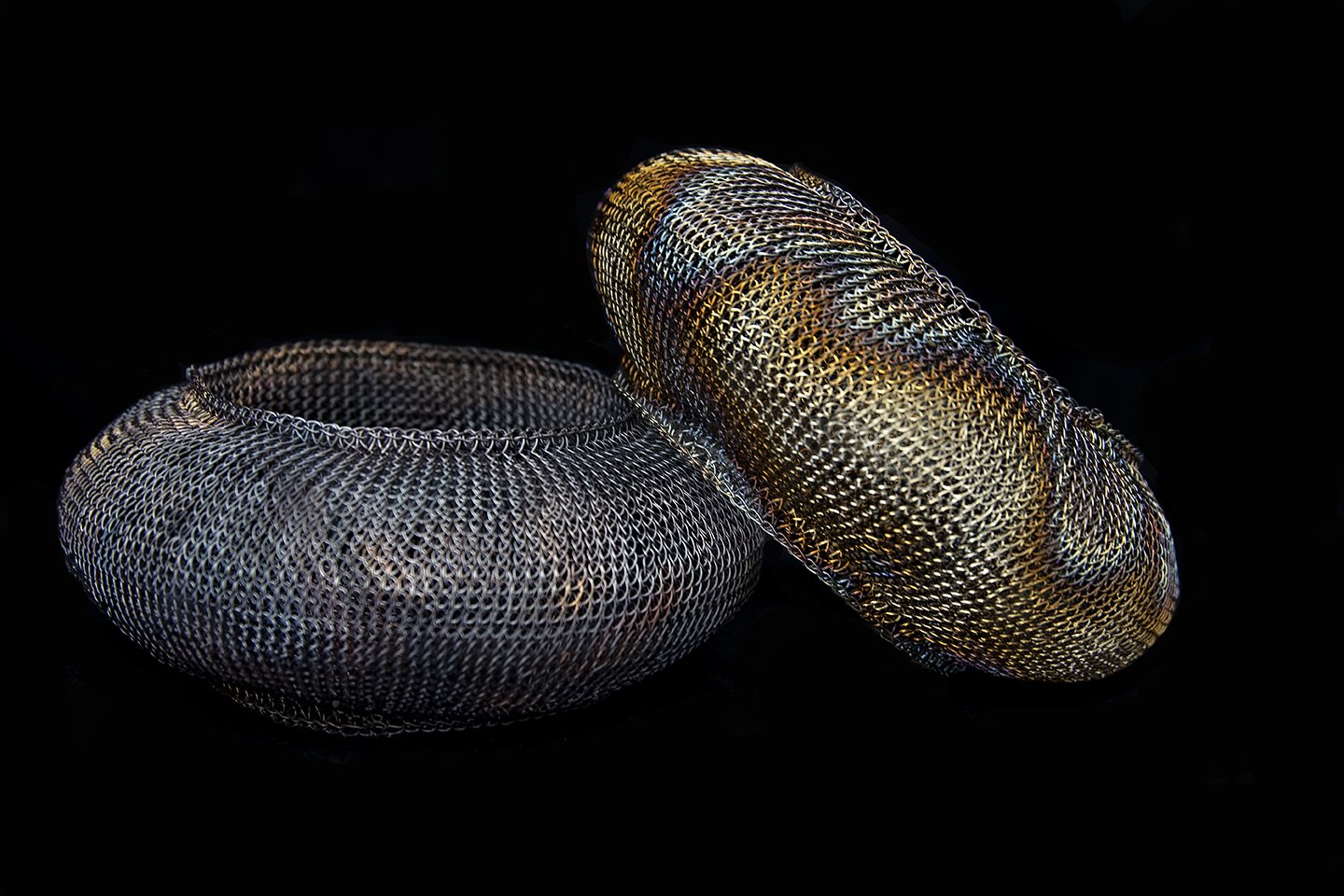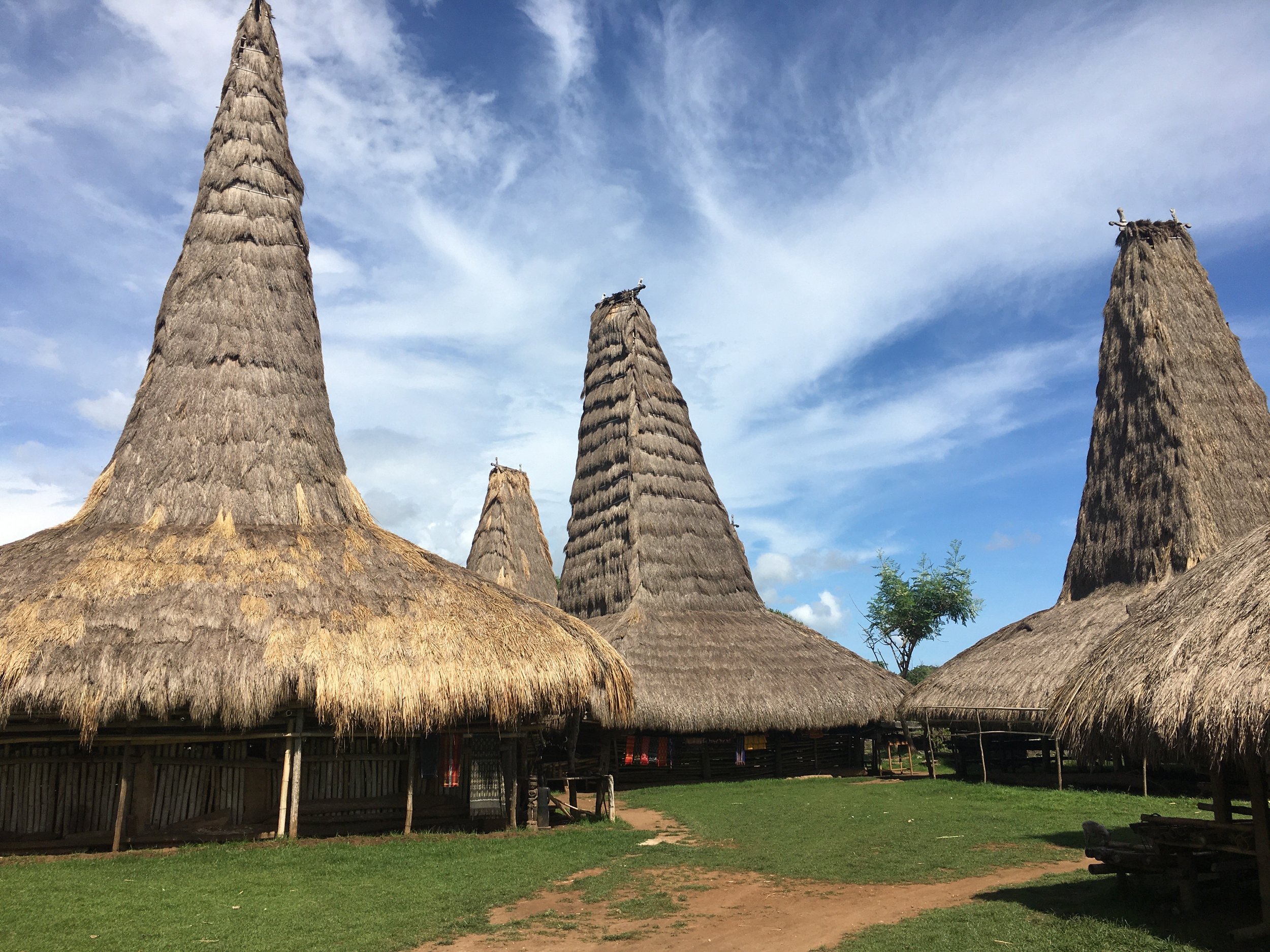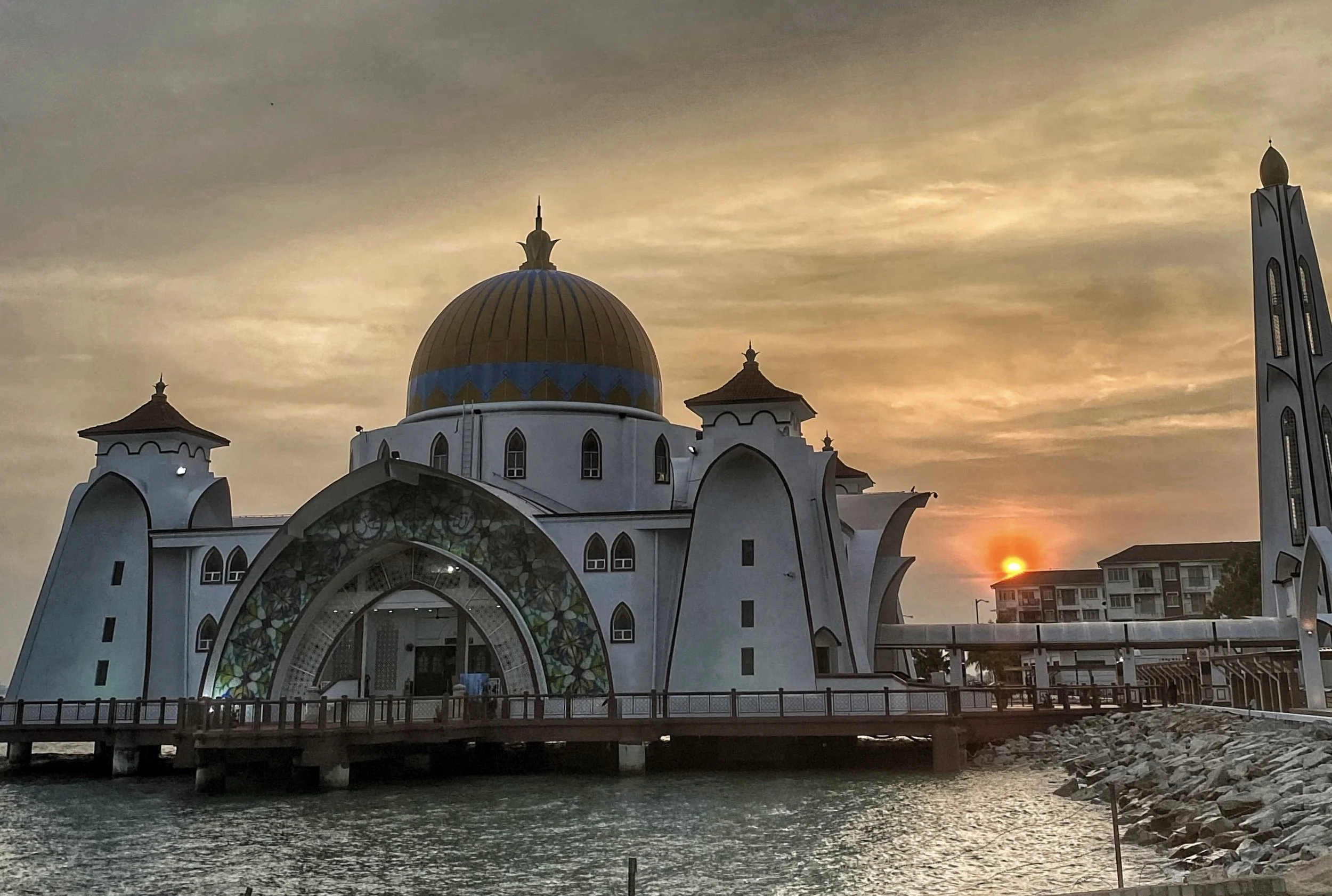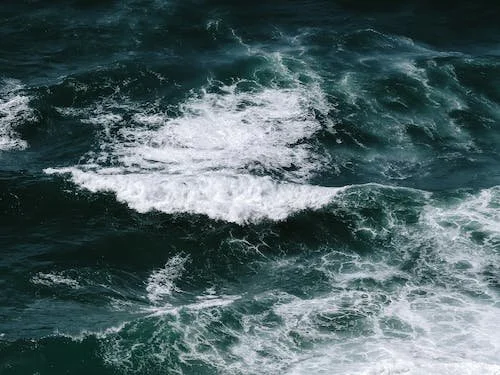Weaving Sumba's Unique History Into The Fabric Of the World.
Ah, Sumba, you are so far away, so much so that today, we refer to you as the 'forgotten island,' a label that reflects the island's isolation and the lack of attention it receives compared to its more popular neighbours.
It was aeons ago when you tumbled out of the volcanic southern archipelago and, like an errant child you drifted south until you were closer to Australia than you were to Indonesia.
Once separated from your exotic cousins, Bali, Lombok and Flores, you joined the Lesser Sunda Islands and quietly morphed into an enchanting structure of dry swathes of limestone hills and vast swathes of undulating savannah until your physical characteristics no longer bore any relation to your northern neighbours.
You left so long ago, you've now become a place apart.
Wild horses roam your palm-fringed beaches, and wandering on your undulating dirt roads, we see more buffaloes than cars. Your shadow-draped natural pools and mythical surf break onto shores the colour of snow while creating dramatic blow holes along the limestone cliffs.
Your indigenous people developed their mythical Marapu belief system, a complex spiritual practice that influences every aspect of their lives, including their artistic expressions. They worshipped their ancestors buried in giant, megalithic tombs. Villages of thatched, pointy-roofed homes are scattered throughout the plains and hilltops where betel-nut chewing women spin elaborate ikat fabrics emblazoned with geometric patterns of seashells, hand-dyed with indigo leaves, root bark and powdered turmeric.
The tall symbolic grass roofs play host to nominally protestant villagers who pay their respects to the spiritual forces with bloody sacrificial rites.
This is an island of shamanic priests practising their ancient rites on an island where time has all but stood still for centuries. There are no sprawling shopping malls., cinemas and supermarkets; time and commerce here move at their own pace, where goods and chattels are sold in markets or dimly lit stores scattered across the small villages that dot the landscape.
Many visitors are confronted with evidence of dire poverty, tribalism and sacrificial rituals. It hasn't experienced anything like the overdevelopment seen across the islands of its northern neighbours, who have embraced the lure of the tourist dollar. Sumba has always been overlooked;
It is still the forgotten island.
Poverty is deeply rooted amongst the seven hundred-odd thousand Sumbanese, bereft of any meaningful government assistance, which, over time, has resulted in the province being far and away the poorest in the country. The Sumbanese, however, are a resilient people. They are not just hard-working farmers and skilled artisans but people whose creativity flows through their veins like the pristine streams and rivers that fill their picture-perfect lakes.
It often takes something or someone from the 'outside' to recognise an opportunity to empower the local indigenous population. It was Melania Karolina founder of Manamu Handwoven Design Studio in Bali brought hope and optimism to the Sumbanese, enabling them to bring their skills and expertise to the attention of the 'outside world."
Manamu recognised the uniqueness of the Sumbanese weaving skills and it embarked on a quest to empower the artisans to keep their traditional crafts alive.
For years skilled weavers veered away from fabrics and branched out by weaving stainless steel, brass and copper wire into objects de art and exquisite, minimalist jewellery pieces which would be right at home at any high-end luxury store in the West.
The time had come for these weavers to be recognised for the artists they are.
Manamu encouraged several skilled artisans to relocate to the island of Bali and into Manamu's studio. It was here that they were exposed to techniques and modern designs. Over two years they have been able to expand the volume of their creations and have begun to export their creations to the rest of the world.
In a cruel twist of fate just one year after the creation of the business, COVID-19 struck with the brutal force of a giant tsunami, effectively paralysing the company.
It was Manamu's philosophy to preserve these artisan's skills in an economically self-sustaining environment. As the virus spread across the world, undeterred by the huge obstacles which confronted them, they battled on. With no outside help ( and, more importantly, no orders), Manamu managed to hold on by its fingertips, and even in those dark times, the artisans increased their individual incomes by a staggering 66%. Manamu's founders and support staff made it their quest to ensure the business survived. Promises made to artisans were promises ultimately kept, and sheer determination ensured the company survived.
As the pandemic retreated, new clients and commissioned pieces became the focus of building the brand. With limited funds and a burning desire to keep the company afloat, sacrifices were made. Endless rounds of travel to conferences, design shows, and potential clients across the globe to showcase new innovations and creations became the order of the day.
To achieve success, the artisans, unused to the demands of sophisticated markets, had to adapt their designs to the needs of discerning clients in Paris, New York, Japan, Australia and beyond.
Manamu, realising the pitfalls of concentrating solely on one design stream, broke with tradition and forged its way into the homeware sector with cutting-edge designs and pieces which, quite simply, 'stood out from the crowd."
Persistence, patience and sheer hard work have begun to pay off, a testament to the collaboration between Manamu's management and the Sumbanese artisans who interpret the commissions and deliver stunning creations time after time, many of which grace some of the leading hotels and homes, and businesses around the world.
Manamu has been the vehicle to help preserve the near-lost art of traditional metal weaving, helping to keep the forgotten stories and traditions of Sumba alive at home and abroad.
Long may it last
Manamu can be contacted at;
Jalan Batusari 35R Denpasar 80228 Bali Indonesia 9843 879
Ph +62 815 9843 879 Email. melania @manamu.id www.manamu.id www.instagram.com/manamuhandwoven
Paul v Walters is a bestselling author of several authors and is a prolific travel writer. When not cocooned in sloth and procrastination in his house in Bali he occasionally rises to begin another novel. His latest offering RITUAL was released in November 2024.


